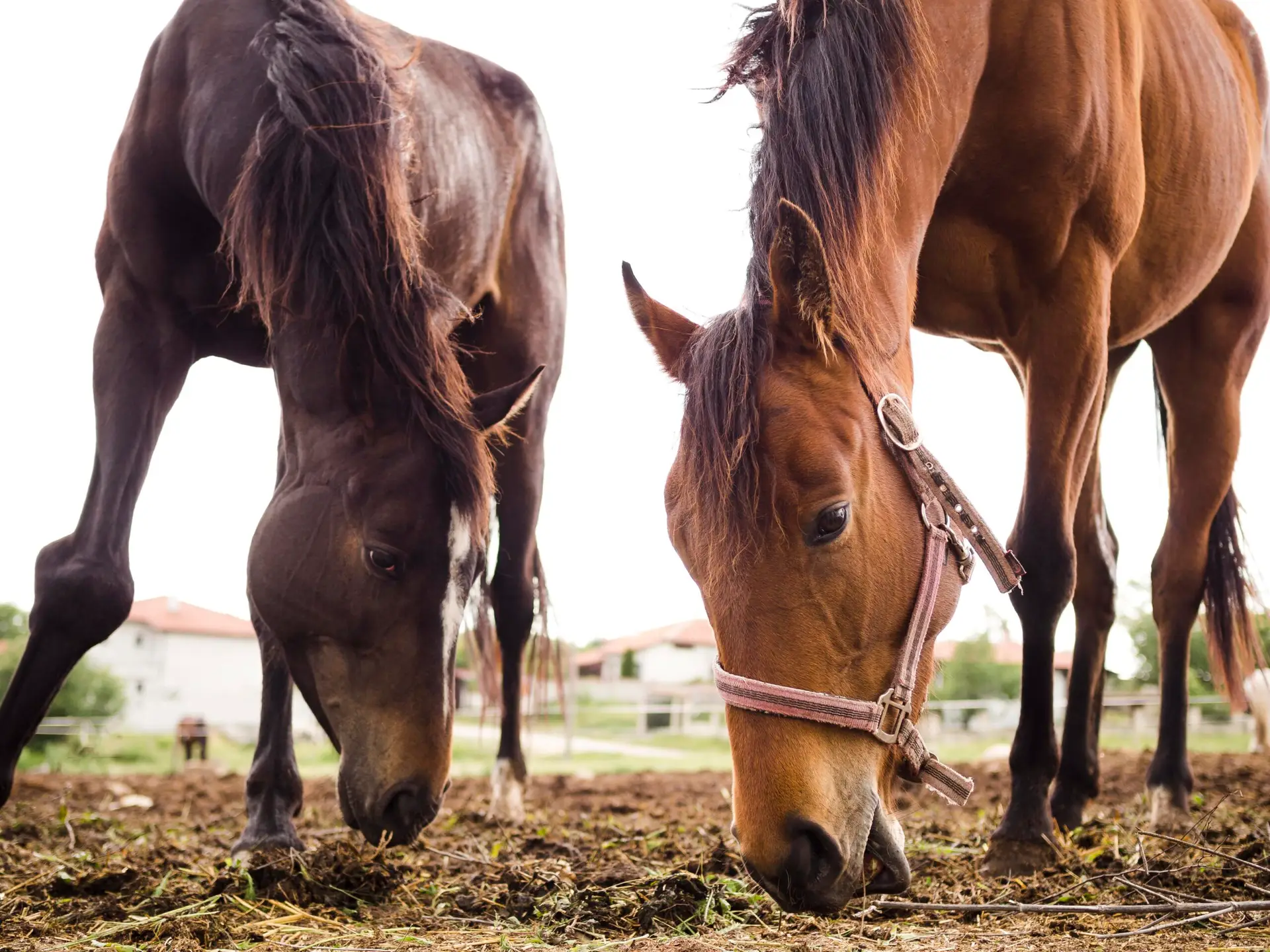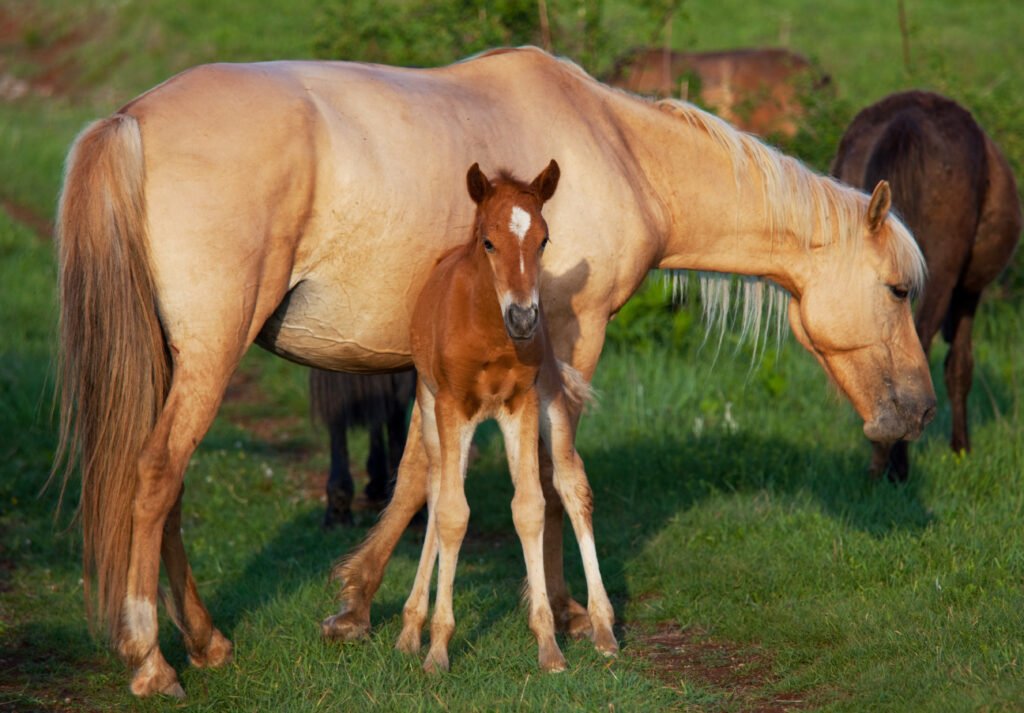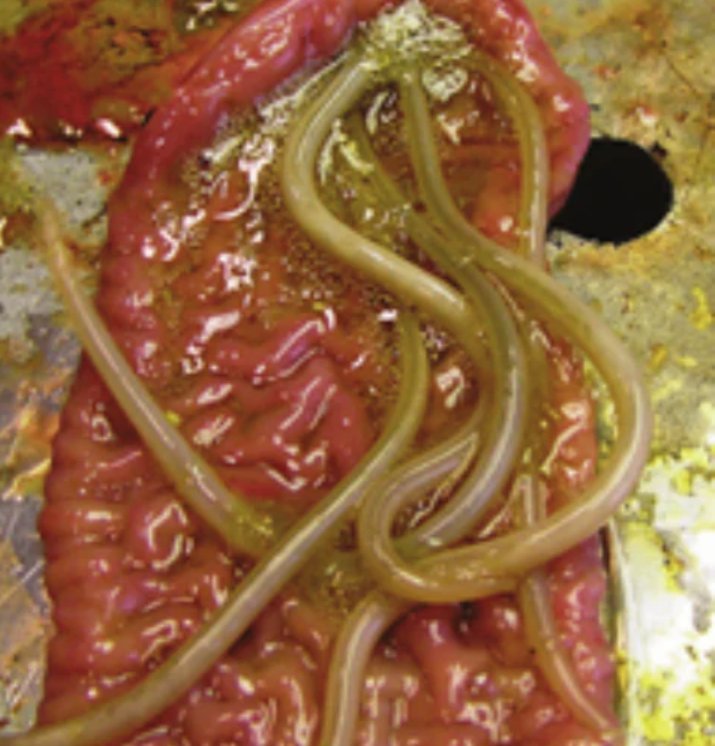Worming Mares & Foals

A HEALTHY BEGINNING FOR FOALS FROM THE OFF
Effective parasite management is crucial for ensuring that young horses have a healthy beginning in life.
Foals are born without parasites but can encounter them shortly after birth. These young animals are particularly susceptible as their immune systems are still developing.
A meticulous schedule of testing and treatment is necessary to safeguard the health of both the mare and her foal.
THE MARE DURING PREGNANCY
Proper management starts even before the foal arrives. The mare should undergo worm egg counts every three months and tapeworm testing every six months, with treatments administered based on the results, along with a winter treatment for encysted redworm.
Consult your veterinarian or SQP to confirm that any dewormers used are approved for pregnant mares.
Maintain clean pastures by regularly removing manure, practicing cross grazing, resting paddocks, and avoiding overgrazing.
Foals and young horses are particularly at risk from ascarids. Due to the resilient nature of ascarid eggs, which can withstand extreme temperatures and remain dormant in the pasture for years, it is advisable to provide fresh grazing for mares and foals.

DUE DATE
The first parasite of concern in foals is the threadworm, Strongyloides westeri.
This parasite can thrive both in the environment and within the horse as a host. The female threadworm is capable of penetrating the horse’s skin, where it can reside in body tissues for many years.
Additionally, threadworms can be transmitted from the mare to the foal through her milk. While a Strongyloides infection may lead to mild to moderate digestive disturbances and diarrhea in some foals, it is no longer deemed best practice to treat the mare prior to foaling as a preventive measure. This strategy is discouraged due to the increased risk of fostering resistance in other parasites, unless there is a documented history of threadworm infection on the property.
Instead, it is advisable to conduct a worm egg count when the foal is four weeks old, followed by subsequent counts every eight weeks to assess the levels of egg shedding for threadworms and other parasites.
Your veterinarian can evaluate whether the clinical signs, in conjunction with the test results, necessitate treatment or if the diarrhea may be attributed to another cause.
For foals, a single dose of fenbendazole is the recommended treatment. If mares require treatment before foaling, they should receive a proactive dose of moxidectin (Equest) four weeks prior to the due date or an ivermectin-based dewormer around the time of foaling.
Our preference is to use the moxidectin wormer, as we aim to minimise chemical exposure during this critical period.
Healthy foals typically develop a natural immunity or tolerance to this parasite by approximately six months of age.

FOALING TO ONE MONTH
It is advisable not to administer deworming treatments to the mare until at least two weeks post-foaling, unless directed by a veterinarian.
This precaution is necessary because the metabolites from the dewormer can be transmitted through the mare’s milk, potentially impacting the foal. If the foal exhibits signs of scouring and there is a suspicion of a threadworm infection, it is crucial to seek veterinary assistance promptly, as dehydration can rapidly become a serious issue for a young foal.
ONE MONTH TO SIX MONTHS
The next type of parasite that foals are likely to encounter is the ascarid, specifically Parascaris equorum.
These large, creamy white worms can reach lengths of up to 40 cm, posing a significant burden for small foals. They reproduce prolifically, and an infected foal can produce an alarming quantity of these worms following treatment. Signs of infection may include poor weight gain, lack of vitality, a pot-bellied appearance, or a rough coat, all of which indicate the detrimental impact of the parasite on the foal’s growth and development.
The size and number of worms can lead to intestinal blockages, resulting in colic and potential gut ruptures, while migrating larvae can cause coughing and respiratory issues due to pulmonary hemorrhaging.
At one month of age, treat the foal with a generous single dose of fenbendazole (Panacur), which is effective against ascarids. Accurately assessing a foal’s weight can be challenging, so it is better to err on the side of overestimation to ensure an adequate dose is administered.
This medication has a high safety margin, with the toxic dose for horses being over 50 times the standard deworming dose. Continue deworming the foal every 4-6 weeks, alternating between pyrantel and fenbendazole until the foal reaches six months of age.
It is advisable to monitor worm counts when deworming is scheduled to ensure best practices. Healthy young horses typically develop natural immunity to ascarids by the age of 2-4 years, although cases can still occur in older horses that have had a challenging start in life. Two months after foaling, resume conducting worm egg counts for the mare every three months, treating as necessary.
SIX MONTHS TO YEARLING
As the foal matures and begins to graze more extensively, the likelihood of encountering additional parasites increases, including small redworm (Cyathostomins), large redworm (Strongylus vulgaris), and tapeworm (Anoplocephala perfoliata).
If the foal is pastured with other horses, it is advisable to conduct a tapeworm test at six months of age using the Equisal saliva test. Should tapeworms be detected, treatment can be administered with either a double dose of pyrantel or a single dose of praziquantel.
From six months onward, testing should occur every six to eight weeks until the foal reaches the yearling stage, with deworming performed only as necessary.
The mare should continue to be tested every three months. During the winter months, both the mare and foal should be tested for the presence of encysted redworm, either through blood tests or fecal examinations.
Small redworms are among the most prevalent and detrimental parasites affecting horses, particularly in their larval stage when they invade the gut lining and encyst. In this encysted form, they do not produce eggs, making them undetectable through standard worm egg counts.
If left untreated, these encysted small redworms can pose a serious health threat, as they may emerge in large numbers from the gut wall in the spring, leading to weight loss, digestive disturbances, and colic.
For underweight foals, Panacur 5 Day Guard is recommended, while Equest is suitable for those with adequate body fat.
ADDITIONAL NOTES
Moxidectin is not recommended for young foals until they have developed sufficient body fat. Ivermectin is also not the ideal choice for routine deworming of young horses due to known resistance issues with ascarids.
If there are any health concerns regarding your mare or foal, please consult a veterinarian.
Although it may contradict standard practices for adult horses, young foals require proactive deworming to safeguard against parasites. Early incorporation of worm counts and tests into their care regimen will assist in identifying horses with high parasite loads and those needing additional support, thereby preventing complications from excessive parasite infestations.
